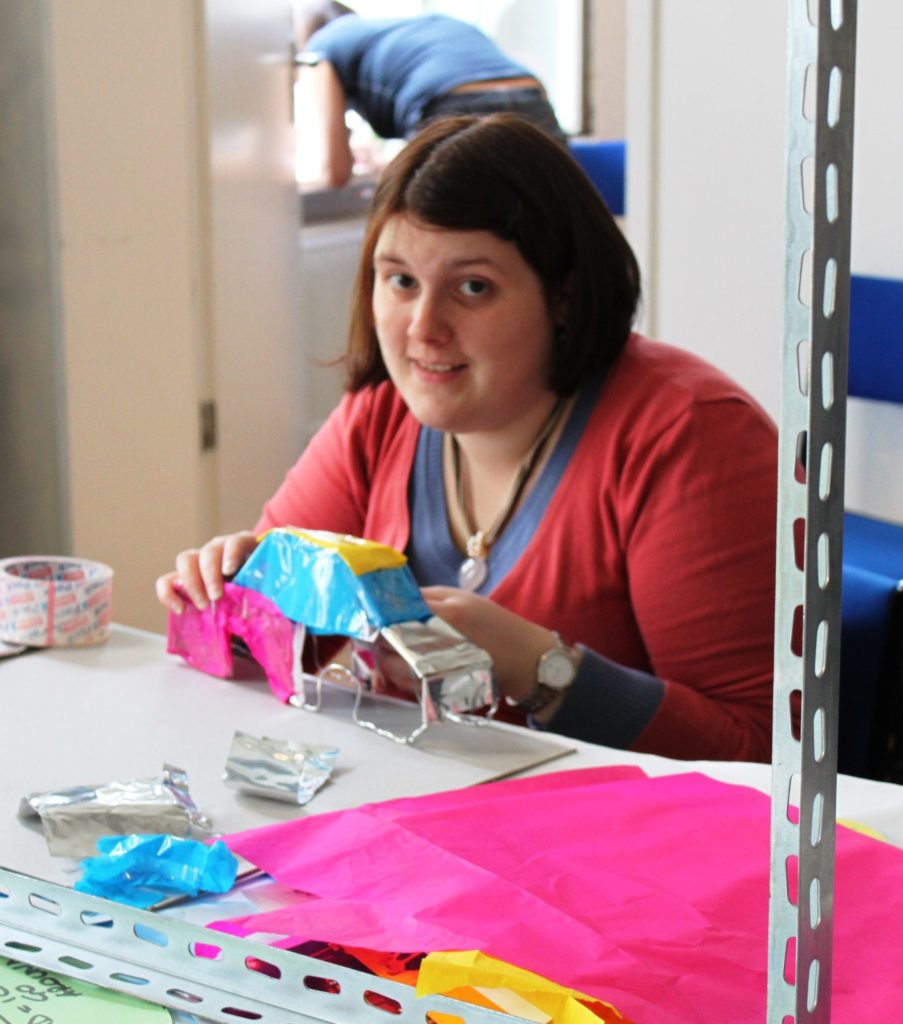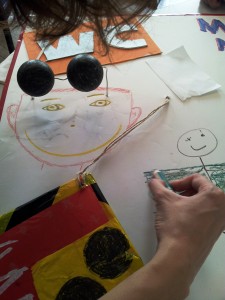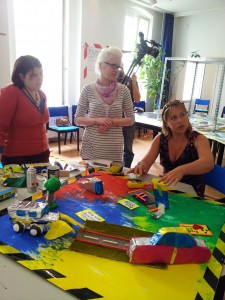WHY YOU DID IT?
Fantasy in the morning: We did it because it was fun to build the cities we wish to live in with our own hands.
Information in the afternoon: Because it’s useful for us to know other people’s experiences and the opportunities there are to be active and participate in youth associations. We shared best practices from each country because we can get the best ideas from each country.
WHAT YOU DID?
Fantasy in the morning: We created our ideal city with different materials in four groups of four people.
Information in the afternoon: A lady with Usher Syndrome came to talk about her personal experiences and tried to help us with all our doubts. We have also had a very interesting presentation about the European Forum Organisation.
We shared information about youth people that are connected with organisations, how to move with a cane/ guide dog and technologies we can use to make our lives easier.
RESULTS:
We’ve had very good results because we came across a lot of ideas of how to make
our cities more accessible. We’ve got the information to be connected with other visually impaired people and we’ve got a lot of ideas to improve our own country.
Written by Lucia Nogues Marino and Tamara Conde Vera
The first activity of the morning was to sing ‘Happy Birthday’ via Skype to Dario’s mother, which worked as an energizer gave a nice start to the day.
We split into the groups as they were formed in the previous day, and chose the materials for the creation of our visionary city. We were offered a huge range of tools and materials (paints, coloured papers, wires, glue, etc.) to use during our work.
We had time limit until 2 pm to realise our visions and to let our imagination flow. Everyone had so much fun, and it was like going back to kindergarten. It was really entertaining to look at how everyone’s face was covered with paint and how we all glued our fingers and hair. At first the teams decided what to include in their creation and made a draft, then all members chose the tasks that they were responsible for.
When the time was up, we went back to the seminar room because a special guest, Ullie had arrived. She talked about her experiences as a visually impaired and hard of hearing person (she has Usher’s Syndrome). She found out about her condition when she was a child, and she described her school experiences in a special school. When she had to go to a regular school, she had to face the fact that people did not know how to relate to her, and she did not know either how to relate to them. Through her struggles she learned that it is a lot better to talk about her problems than to be misunderstood, and be considered drunk or lazy sometimes. She gave us advice on how to act at our workplace with our colleagues, and how to manage ourselves. Then she answered all our questions.
Then it was Karina’s turn to give us an interesting presentation about the youth organisations at EU level, and how we can participate in them. She also provided useful information on the funding of youth programs and initiatives.
After Karina’s presentation we worked in small groups on the basis of countries and regions, and discussed the NGO system and opportunities for mobility in our countries, and shared with each other the technical inventions that we have heard of. Each group presented the results of their discussion in 5-7 minutes. Although it was very interesting to hear about the situation in other European countries, many of us felt that this activity would have been more useful at the beginning of the week, because these topics had already come up during the informal discussions of the previous days.
We finished the session with the reflection groups, where we were talking about the experiences of the previous two days and the imaginary phase of the workshop. Saturday was a busy day, just like the previous ones, and we are looking forward to the last day of our workshop to find out how some of our creative ideas could be put into practice.
Written by Guilia Polito, Nelli Berezcki and Szabolcs Orban



